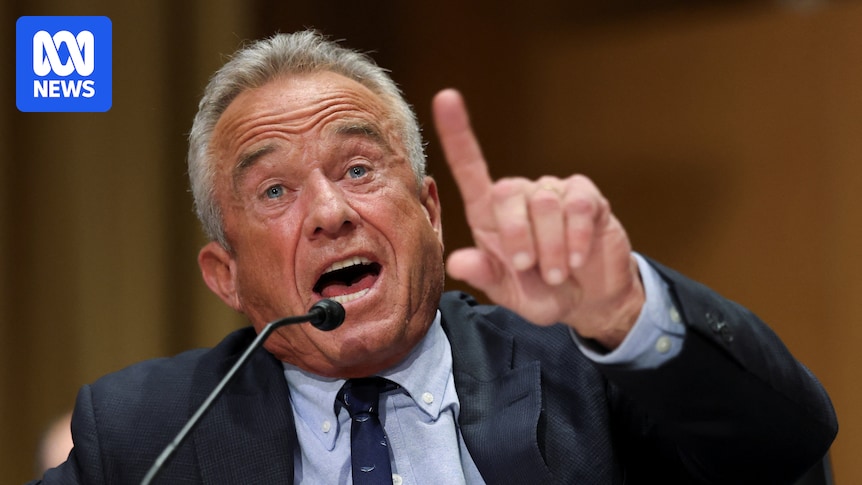
In a heated Senate hearing, US Health Secretary Robert F. Kennedy Jr. faced intense questioning from both Democrats and Republicans over his recent vaccine policies. The session, held on Thursday, spotlighted Kennedy’s controversial decisions, including the dismissal of Centers for Disease Control and Prevention (CDC) director Susan Monarez, a move that has drawn significant criticism.
The hearing comes amid growing concerns about Kennedy’s approach to vaccine management, which contrasts sharply with former President Donald Trump’s pandemic strategy that prioritized rapid vaccine development. Trump’s initiative, widely credited with accelerating COVID-19 vaccine availability, set a high bar that Kennedy’s policies are now being measured against.
Contentious Exchanges and Policy Decisions
During the hearing, Republican Senator Bill Cassidy, a physician and key figure in Kennedy’s confirmation, questioned the health secretary about the cancellation of $500 million in COVID vaccine contracts. Cassidy highlighted the impact of these cancellations on doctors and cancer patients who rely on vaccines for protection against the virus.
“I would say, effectively, we’re denying people vaccines,” Senator Cassidy remarked, underscoring the critical nature of the issue.
The senator’s line of questioning revealed the delicate balance Republicans must maintain in critiquing Kennedy’s policies without appearing to undermine Trump’s achievements. Cassidy further probed Kennedy about his alleged statement that vaccines had killed more people than COVID-19, a claim Kennedy denied.
Trump’s Support Amid Controversy
Despite the scrutiny, former President Trump expressed support for Kennedy, acknowledging his “different take” on vaccines. Speaking at a White House event, Trump stated, “He means very well, and he’s got some little different ideas. I guarantee a lot of people at this table like RFK Jr. And I do, but he’s got a different take, and we want to listen to all those takes.”
This endorsement highlights the complexity of the political landscape surrounding vaccine policies, as Republicans navigate the legacy of Trump’s administration while addressing current health challenges.
Democratic Concerns and Broader Implications
Democrats, alongside some Republicans, voiced significant concerns over Kennedy’s actions. Senator John Barrasso, also a physician, criticized the health secretary for not upholding the promised standards for vaccines. Barrasso pointed to recent measles outbreaks and the firing of CDC officials as alarming developments.
“The public has seen measles outbreaks, leadership in the National Institutes of Health questioning the use of mRNA vaccines, the recently confirmed Director of Centers for Disease Control and Prevention fired,” Barrasso stated.
These concerns were echoed by other lawmakers, including Senators Maggie Hassan, Raphael Warnock, and Bernie Sanders, who questioned Kennedy’s commitment to science-based vaccine policies.
Defense and Accusations
Under intense questioning, Kennedy defended his decision to remove Monarez, suggesting that further dismissals might be necessary. He argued that Monarez resisted policy changes that he believed were necessary, despite her claims that these changes contradicted scientific evidence.
In a Wall Street Journal opinion piece, Monarez accused Kennedy of attempting to weaken US vaccine standards by directing her to pre-approve vaccine recommendations and fire career CDC officials. Kennedy refuted these claims, labeling them as false.
“Secretary Kennedy’s claims are false, and at times, patently ridiculous. Dr Monarez stands by what she said in her Wall Street Journal op-ed,” Monarez’s lawyers stated.
Looking Ahead: The Future of Vaccine Policy
The Senate hearing underscores the ongoing debate over vaccine policies in the United States, highlighting the challenges faced by health officials in balancing public health needs with political pressures. As the nation continues to grapple with the aftermath of the COVID-19 pandemic, the decisions made by leaders like Kennedy will have lasting implications.
Moving forward, the administration’s approach to vaccine policy will be closely watched, with stakeholders from across the political spectrum weighing in on the best path forward. The outcome of these debates will shape the country’s public health landscape and influence global vaccine strategies.
As the dust settles from this fiery hearing, all eyes will be on Kennedy and his next moves, as well as the broader implications for US health policy in a post-pandemic world.







